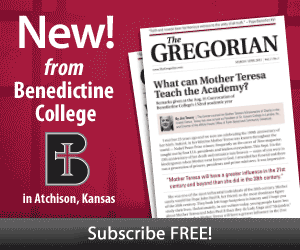Issues
No, Accommodating Sharia Law Would be a Mistake

When I read Austen Ivereigh’s provocative essay, “Why the Bearded One Is Right About Sharia Law,” defending the recent speech by Dr. Rowan Williams, the Archbishop of Canterbury and the head of the worldwide Anglican Communion, I was compelled to respond. With all due respect to Mr. Ivereigh, I believe that he and Dr. Williams have erred in their judgment that accommodation of sharia law would benefit British (or Western) culture.
The Judeo-Christian ideas of human dignity, the natural law, and God as the Author of Reason have provided the foundation on which the edifice of democracy has been built. This is the reason that Jewish and Catholic systems of religious law are relatively compatible with modern, pluralistic, democratically-governed nations; their ideals gave birth to it.
Not so Islam. The Rev. Ben Kwashi, the Anglican archbishop of northern Nigeria, for example, states in an interview with the BBC that no matter what its principles may be in the abstract, the implementation and practice of sharia law results in oppression of religious minorities and violations of human dignity to all who suffer beneath it. The principles undergirding sharia derive not from natural law, but from a religious revelation contrary to Christianity; Dr. Williams himself states, “…[S]haria depends for its legitimacy not on any human decision, not on votes or preferences, but on the conviction that it represents the mind of God” and that according to scholars, the Koran’s “universal claims are not open for renegotiation”. As Pope Benedict XVI pointed out in his brilliant lecture at the University of Regensburg in 2006, Islam’s view of the nature of God is different from that of the Judeo-Christian tradition, lacking a full comprehension of God as the Author of Reason. Thus, sharia’s principles (and in turn its practice) will not conform to what the Church teaches about the nature of the Godhead, the nature of man, and the centrality of the Incarnation regarding our concept of human dignity.
Sharia admits of no “moderation” or “adaptation” of its precepts; again, with all due respect, Dr. Williams is mistaken to assume that radical Muslims who wish for the establishment of sharia law will be tolerant of those who do not wish to live by its principles. As Abp. Kwashi puts it, “Once you ask for the first step of sharia law you are going to get to the last of it.” When sharia gets a foot in the door, it bursts all the way in and takes over, resulting in oppression and suppression of human dignity. This is the reality on the ground.
Moreover, Dr. Williams’ logic is flawed when he states that since there exist “societies where there is a concept of citizenship that is not identical with belonging to the umma” [Pakistan, Jordan et al.], there must therefore “be some concept of common good that is not prescribed solely in terms of revealed Law… [T]his implies in turn that the Muslim, even in a predominantly Muslim state, has something of a dual identity, as citizen and as believer within the community of the faithful.” There is no reason to suppose such a thing, or to assume that it provides a benefit to the society; history testifies quite to the contrary. In countries such as Spain where Muslims once dominated a Christian and Jewish population, the non-Muslims were indeed regarded as citizens, but as second-class citizens - dhimmi rather than umma. In the Archbishop’s example of Pakistan, Christians are routinely harassed and discriminated against. Equal rights based on human dignity are unknown in these cultures; there is nothing in Islam that challenges clan or tribal loyalties, and if you’re out, you’re out.
Regarding the example the Archbishop gives of the Catholic adoption agencies in Britain who were directed by state regulations to consider gay couples for placement or cease operations (a similar situation occurred recently in Boston, MA): I will grant perhaps that Dr. Williams tried to express a legitimate hope for equal respect of all deeply held religious convictions under a common (i.e. secular) system of law. However, if the state were to accommodate Catholic teaching regarding the family in its adoption policies, this would mark a return to the principles of natural law and human dignity that give spiritual strength to a human society. On the other hand, if the state were to accommodate sharia law regarding the legitimacy of Muslim plural marriage and/or allow a man to force his daughter into a marriage to which she does not consent, this would contradict and move us away from God’s plan for the human family as expressed in the Church’s teachings. The content of the ideas being accommodated matters quite a lot. The concepts which come to us from the Christian revelation and which form the basis of Western civilization should be welcomed and accommodated; those which threaten or contradict them should be excluded.
In his discussion of Islamic prohibitions against ‘apostasy’ and the need to guard against a “primitivist” implementation of sharia, Dr. Williams regards the divergent opinions among Islamic scholars as a sort of cushion or barrier against extremism in the Muslim community. He seems to regard it as similar to the diversity he encounters within the Anglican Communion on issues of religious language, liturgy, and other types of Anglican prayer and practice, wherein those who practice the faith in different ways treat each other with mutual respect. I am bothered that Dr. Williams does not seem to recognize that in most Muslim states under sharia, people who harbor opinions contrary to the majority are not tolerated or respected; they are exiled, forced to convert to the majority opinion, or summarily killed. Moreover, there is no Magisterium in Islam; there is no one to state definitively that the “moderates” have the right perspective on sharia and the “primitives” have it wrong. Dr. Williams himself admits he’s not an expert; who’s to say who’s right about this from a Muslim perspective?
To his credit, Dr. Williams offers a critique of the Enlightenment and subsequent political attempts to homogenize people into accepting a single secular idea of citizenship (including the French Revolution and the crackdowns on democratic uprisings in Communist China). In his support for the consideration of religious ideas in secular jurisprudence, however, I do not believe that he is advocating respect for religion as such; rather, he calls for a “deconstruction” of both the Enlightenment and sharia, and seems to argue for a postmodern multiculturalism in which ‘truths’ (small t) are discovered in religious communities and then incorporated into a common cultural framework, as follows:
“Our need, as Raymond Plant has well expressed it, is for the construction of 'a moral framework which could expand outside the boundaries of particular narratives while, at the same time, respecting the narratives as the cultural contexts in which the language [of common dignity and mutually intelligible commitments to work for certain common moral priorities] is learned and taught' (Politics, Theology and History, 2001, pp.357-8).”
Dr. Williams agrees that the concepts of human dignity and freedom “are historically rooted in Christian theology”, but then goes on to say that “they have acquired a life of their own in isolation from that theology.” [emphasis mine]. Again, our Holy Father Pope Benedict has made it very clear that the concepts of the sanctity of human life and the necessity of human freedom have nearly been strangled to death in modern times by their attenuation from the Christian tradition. We cannot assume that these concepts will remain a vigorous part of our life together unless we return to their Source. Dr. Williams seems to think that we can spend our Christian moral capital on a vague, borderless, continually-manufactured multiculturalism without any consequences.
In his essay discussing Dr. Williams’ speech, Mr. Ivereigh admits that certain opposing principles inherent in religious and secular systems of law may conflict and, when the secular law trumps religion, this may cause hardship to religious people. For example, he writes that “a Catholic priest in the UK has no right in law to keep what is said to him in the confessional private, but if he is asked in court to reveal something told to him in confession, he must still refuse and go to prison if necessary, because that is the only way he can be beholden to both canon and civil law. But the fact that this almost never happens is reason enough not to worry about it.” [emphasis mine]
Unfortunately, this did in fact happen in a town close to where I live in Portland, OR. A priest I know went to the Oregon State Correctional Facility (i.e. the state prison) in Salem several years ago to hear the confession of a man accused of murder. Contrary to prison policy and in violation of the integrity of the sacrament, the confession was taped. Prosecutors attempted to introduce the tape as evidence in the case, and the priest had to engage in years of legal wrangling to have the tape destroyed. Even after he was successful, there are transcripts of this tape that still exist and remain in the legal case file. My point: Conflicts between Christian precepts and secular laws happen all the time. If Christian principles are a priori assumed to be on a level playing field and up for grabs along with other religious tenets and secularist notions, we will soon be kissing our relatively tolerant, pluralistic democracy – and our religious freedom - goodbye.
If Mr. Ivereigh is not familiar with the Archbishop of Canterbury’s previous public statements and the crisis currently festering in the Anglican Communion as we speak, I can see how he might see Dr. Williams’ speech as an indictment of positivism. However, based on the Archbishop’s other recent pronouncements on cultural and theological issues, even if positivism was his target in this speech, he missed it by a wide margin.
The Archbishop of Canterbury is currently at the center of a maelstrom of conflict over his unwillingness to discipline the Episcopal Church USA for consecrating an active homosexual as a bishop in 2004; this, combined with the Church of England’s acceptance of women’s ordination in 1994 and the bad influence of many leaders who hold heterodox theological positions, has caused an historic schism in the church between the theologically liberal American, Canadian, and European churches and the more traditional/orthodox Asian, Latino, and African churches.
On the issue of homosexuality, Dr. Williams has stated that for the sake of unity in the Anglican Communion, he supports the Church’s official teaching but privately dissents from it. In this, he admits he accepts the modern positivistic rationalization given for homosexual behavior in defiance of the common ancient traditions of the “one, holy, catholic, and apostolic” Church. Even in the speech we are discussing, he made an allusion to another recent speech in favor of legislation to outlaw “thoughtless and (even if unintentionally) cruel styles of speaking and acting,” a clear violation of the principles of free speech in an open society. The idea of outlawing offensive speech runs quite contrary to the idea that all sorts of worldviews ought to be respected under the law.
Dr. Williams’ proposal, though it may have been made with good intentions, is woefully wrong-headed and is having exactly the opposite result from what he intended; see this article in the Telegraph and this blog entry by Ruth Gledhill, The Times’ religion correspondent. (Pay special attention to the paragraphs underneath the posted video.)








